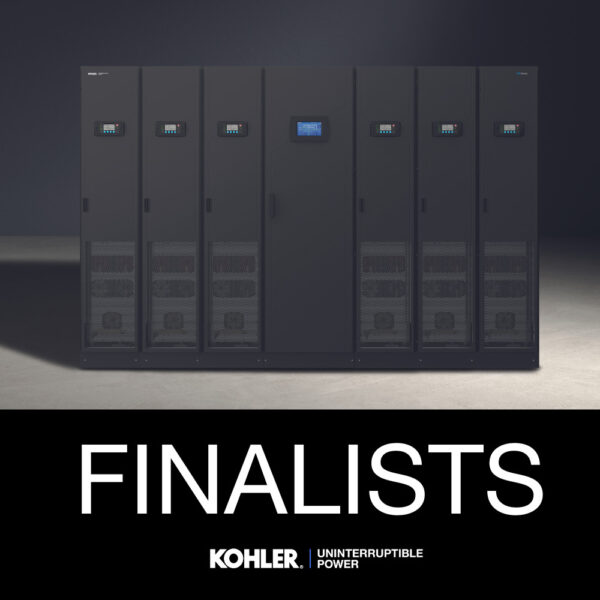Protected power typically invokes an image of electrically sensitive and vulnerable ICT equipment within a data centre. However, while this is perfectly true, the reality is that high-quality power protection is essential to a huge variety of corporate, private and public sector installations – with responsibility for a wide range of critical applications within them.
This is particularly pertinent to educational establishments with large populations of students supported by multiple educational and administrative ICT systems.
An educational establishment can be anything from a small play school to large research university campuses. Of these, universities tend to have the largest networks, and pose the greatest challenges, so we will be focusing on them.
Yet it’s not just about ICT equipment protection. Universities have large populations of students, lecturers and administrative staff, so protection from power problems can be critical to public safety as well as to the equipment. A power failure could leave a campus without lights, phones or computers, and even electrically-controlled door locks could become inoperable. Such results could create incidents of panic or disorder.
Additionally, universities are embedding ever more technology into the educational process. Leicester University[i], for example, has adopted a ‘One iPad per student’ programme’ for their Medical School undergraduates. Students are expected to bring their iPads to every class session to take notes, capture online resources, collaborate with other students, particularly in groupwork seminars, and watch and listen to multimedia learning materials. Other universities in the UK and the rest of the world are implementing similar ‘1:1’ policies[ii],[iii].
These initiatives call for faster Internet connections and Wi-Fi in every lecture theatre. The associated wireless network infrastructures with their switches, routers and modems require power protection to ensure education can continue through any mains power problems. As for any ICT equipment, the power must be clean as well as uninterrupted, to prevent damage from surges or sags caused by, for example, air conditioning.
Most universities, particularly research-intensive facilities, also make further power quality demands. Complex laboratory experiments can be set up to run for extended periods; a power interruption during this runtime could either destroy the experiment, or the data it has generated.
Networks such as Edinburgh University’s EdLAN allow students to perform functions like submit their assignments, while online file and disk storage and backup services contain both assignments and experiment results. Additionally, the University’s EASE system manages authentication and authorisation, including both keycard-controlled physical access and online access to protected websites.
As well as administrative data processing requirements, universities increasingly rely on sophisticated communications networks to handle phones, group mailing, web conferencing, voting systems, reporting, and intranets for committees or other groups.
So what type of power infrastructure is needed?
From the above, it’s clear that a lack of power protection can lead to widespread safety as well as data issues for all types of university. Robust IT and networking infrastructures are integral to the smooth running of campus operations, with students and faculties reasonably expecting 24/7 access. So what should an educational facility look for when reviewing candidate suppliers for a power protection installation or upgrade?
To be a contender, any supplier must be competent to deliver a comprehensive solution comprising UPS, generator and emergency lighting power elements. Equally, they must have proven expertise in installing, commissioning and maintaining the equipment throughout its operational life.
UPS and Generator
UPSs and generators complement one another perfectly. If the mains power fails, a true online UPS continues delivering uninterrupted power, with no break, as essential to much ICT equipment. However, its battery autonomy, however large, is always finite and vulnerable to a sufficiently prolonged blackout. By contrast, a generator cannot start fast enough to avoid a power interruption intolerable to an ICT load, but, once running, can continue indefinitely provided it has sufficient fuel.
The solution, then, is to use a UPS to ensure power continuity, and then let the generator start up and take over if the UPS detects that the blackout duration is threatening its autonomy.
UPS attributes
Given the range of critical applications it must support, maximum possible reliability and availability are essential to any UPS solution. Competitive purchase pricing must be complemented by efficient operation, both to control costs and to minimise the site’s carbon footprint. Compact design, easy installation and maintenance are essential, as many university faculties can be housed in buildings that may be hundreds of years old with few specialised areas for power equipment. Above all, flexibility and scalability are required, so that UPS capacity can easily be grown in line with a campus’s developing requirements.
In conclusion
From the above, we can see that university campuses have large and complex power infrastructure requirements, with a critical need to protect not only their data, communications and other electrical/electronic services, but also their populations of students, staff and visitors.
KUP is well-positioned to meet these needs, as they have the depth of experience, resources, and product line-up essential to providing an integrated power protection solution that encompasses UPS, generator and emergency lighting systems. They can also ensure that any installation is accurately sized for current demand, while being economically scalable for future growth.
Once the installation is up and running, KUP’s resources also extend to remote monitoring services to provide early warning of any problem, and a rapid response from their nationwide team of directly-trained and employed maintenance engineers.
References
[i] https://www2.le.ac.uk/departments/medicine/resources-for-staff/software-for-teaching
[ii] https://www.cultofmac.com/540583/maryville-university-gives-ipad-to-students-1-to-1/





